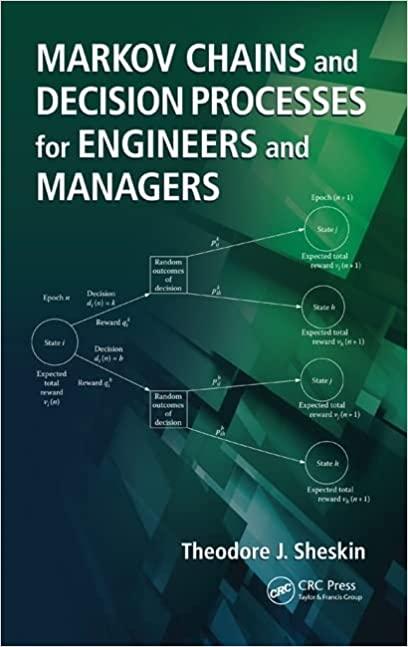Three hockey players compete in a defensive contest. In each round, each eligible player is allowed one
Question:
Three hockey players compete in a defensive contest. In each round, each eligible player is allowed one shot at the goal of the remaining player who has the highest career scoring average. After each round, all players who allow their opponent to score a goal are eliminated, and the remaining players participate in the next round. The contest ends when a single player who has not allowed a goal remains, and is declared the winner, or when all players have been eliminated, and no one wins. The career scoring averages of players A, B, and C are 40%, 35%, and 20%, respectively.
The contest begins with all three players eligible to compete in the fi rst round. Player A will shoot his puck toward the goal of B, A’s competitor who has the highest career scoring average. Next, player B will shoot his puck toward the goal of A, B’s competitor who has the highest career scoring average. Finally, player C will shoot his puck toward the goal of A, C’s competitor who has the highest career scoring average. When the round ends, any player who has allowed a goal to be scored is eliminated. Note that after the fi rst round, in which all three players compete, players A and B can both be eliminated if each scores a goal against the other. Player C, who has the lowest career scoring average, cannot be eliminated after the fi rst round because no other player will shoot his puck toward the goal of C. The surviving players enter the next round.
This contest can be modeled as an absorbing multichain by choosing as states all sets of players who have not been eliminated. For example, if two players remain, the corresponding states are the three pairs (A, B), (A, C), and (B, C).
(a) Construct the transition probability matrix.
(b) What is the probability that the contest will end without a winner?
(c) What is the probability that player A will win the contest?
(d) If players B and C are the remaining contestants, what is the expected number of rounds needed before C wins?
Step by Step Answer:

Markov Chains And Decision Processes For Engineers And Manager
ISBN: 9781420051117
1st Edition
Authors: Theodore J. Sheskin





